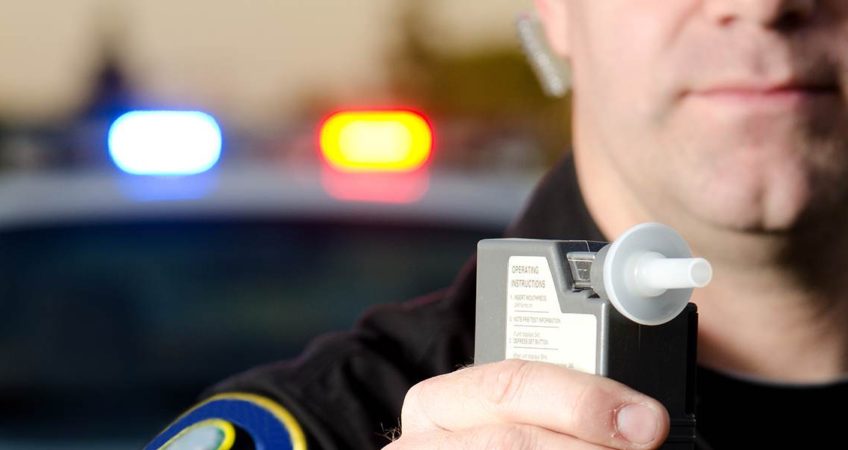
Difference Between BAC and Zero Tolerance in California DUI Cases
In California DUI cases, the terms Blood Alcohol Concentration (BAC) and Zero Tolerance refer to different legal standards for alcohol consumption while driving. Both are crucial in determining DUI charges, but they apply to different groups of drivers and situations. Let’s break down the specifics of each:
Blood Alcohol Concentration (BAC) in DUI Cases
Blood Alcohol Concentration (BAC) is the percentage of alcohol in your bloodstream. California law sets clear BAC limits for various categories of drivers, which are measured through breath, blood, or urine tests when you’re suspected of driving under the influence.
For most drivers, the legal BAC limit is 0.08%. However, for different categories of drivers, the law sets stricter standards:
- Commercial Drivers: The legal BAC limit is 0.04%. Commercial drivers operate larger vehicles and carry greater responsibility, so they face harsher standards.
- Drivers Under 21: For drivers under the age of 21, the Zero Tolerance Law applies, which we’ll discuss in more detail below.
When you are pulled over for suspicion of DUI, law enforcement will typically use a breathalyzer or another testing device to measure your BAC. If your BAC meets or exceeds the legal limit for your category, you will likely be charged with DUI.
Key Points about BAC:
- For most drivers, BAC is 0.08%.
- Commercial drivers are held to a 0.04% limit.
- Testing is done via breath, blood, or urine after a lawful arrest.
- Refusing a BAC test after arrest can result in automatic license suspension, regardless of test results.
Zero Tolerance Law in DUI Cases
The Zero Tolerance Law applies specifically to drivers under the age of 21. In California, drivers under 21 must not have any detectable alcohol in their system while operating a vehicle. Under California Vehicle Code § 23136, the Zero Tolerance Law sets the BAC limit for underage drivers at 0.01%.
Even a minimal amount of alcohol in an underage driver’s system can lead to penalties, which can include:
- Immediate suspension of the driver’s license.
- Potential fines.
- Increased insurance rates.
This law is designed to discourage any alcohol consumption by minors while driving and provides strict consequences, even if the driver is not impaired. For example, a young driver with a BAC of just 0.01%—below any level that would impair an adult—can face consequences under Zero Tolerance laws.
Key Points about Zero Tolerance:
- Applies to drivers under 21.
- BAC limit is 0.01%, meaning even minimal alcohol consumption can lead to penalties.
- Designed to prevent underage drinking and driving, even if the driver does not appear impaired.
How BAC and Zero Tolerance Impact DUI Charges
While BAC determines the level of alcohol in your system for most drivers and can result in DUI charges if above the legal limit, Zero Tolerance focuses on underage drivers and holds them accountable for even trace amounts of alcohol.
Examples:
- Over 21 Driver: A 25-year-old driver is pulled over and tests with a BAC of 0.08%. They can be charged with DUI under California’s BAC law. If the driver’s BAC is lower than 0.08% but they appear impaired, they could still face DUI charges based on officer observations and field sobriety tests.
- Under 21 Driver: A 19-year-old driver is stopped and tests with a BAC of 0.02%. Under Zero Tolerance laws, the driver can face license suspension and other penalties because their BAC exceeds the 0.01% limit for drivers under 21, even if they don’t appear impaired.
Penalties for Violating BAC and Zero Tolerance Laws
- For BAC over 0.08% (or 0.04% for commercial drivers), penalties can include fines, license suspension, DUI classes, and possibly jail time.
- For Zero Tolerance violations (BAC of 0.01% for drivers under 21), penalties can include immediate license suspension and fines, even for small amounts of alcohol.
Can You Fight a BAC or Zero Tolerance Charge?
Yes, it is possible to fight DUI charges related to BAC and Zero Tolerance. Common defense strategies include challenging the accuracy of the breathalyzer test or proving that the traffic stop was unlawful. It’s essential to have an experienced criminal defense attorney to explore your legal options and protect your rights.
Need Help Fighting DUI Charges Under California’s BAC or Zero Tolerance Laws? Contact a Los Angeles DUI Defense Attorney
Understanding the differences between California’s Blood Alcohol Concentration (BAC) and Zero Tolerance laws is essential when facing DUI charges. Whether you are an underage driver affected by Zero Tolerance penalties or over 21 and charged with a DUI due to a high BAC, having the right legal defense is crucial. At The Law Offices of Arash Hashemi, we have over 20 years of experience helping clients navigate DUI laws and protect their future.
If you are facing DUI charges, contact Attorney Arash Hashemi today to discuss your case. Call (310) 448-1529 to speak with us directly, or schedule a 15-minute consultation by using our secure online scheduling system. We will evaluate your case, explain how California’s DUI laws apply to your situation, and develop a defense strategy tailored to your needs.
Schedule a Consultation:
- Phone: (310) 448-1529
- Email: Contact@hashemilaw.com
- Address: 11845 W Olympic Blvd #520, Los Angeles, CA 90064
- Office Hours: Monday to Friday, 8:30 AM – 5:00 PM, with flexible scheduling options available, including weekend appointments.
We are conveniently located in the Westside Towers in Los Angeles, serving clients throughout Santa Monica, Beverly Hills, and Westwood. Contact us today to get the legal help you need and defend your rights against DUI charges.


